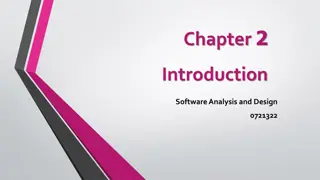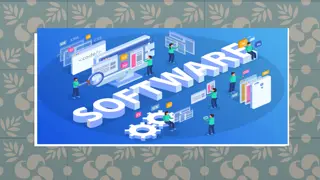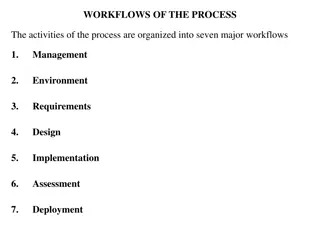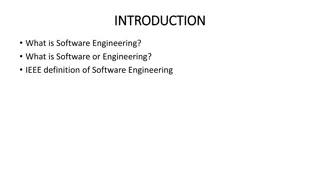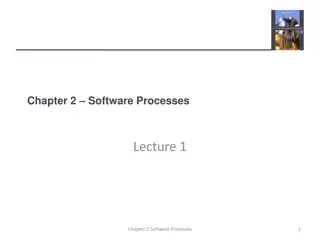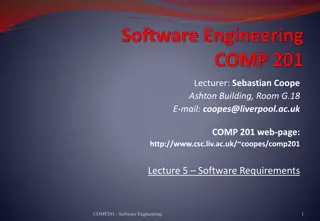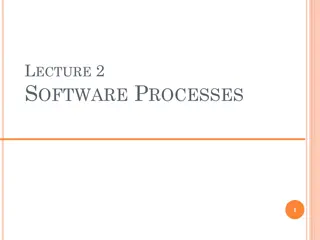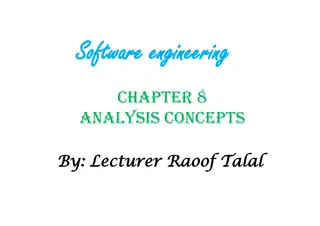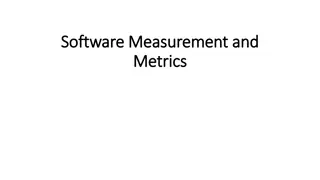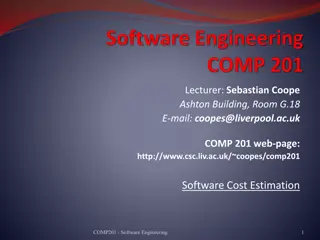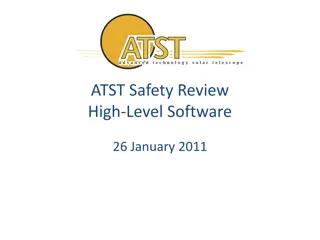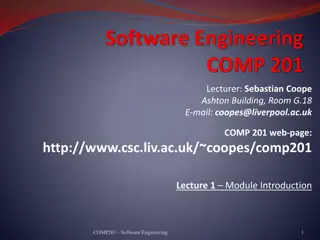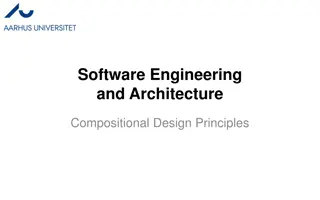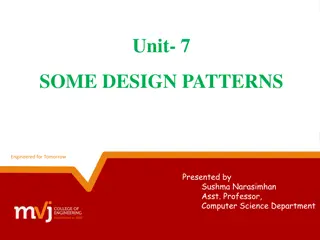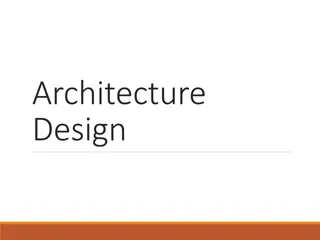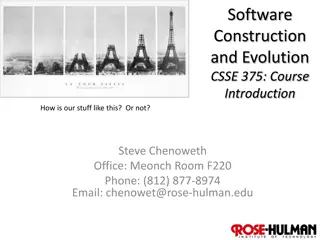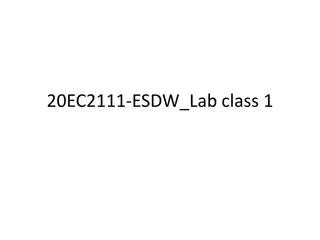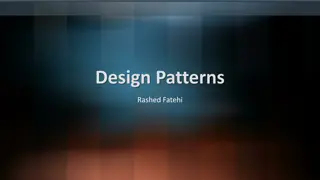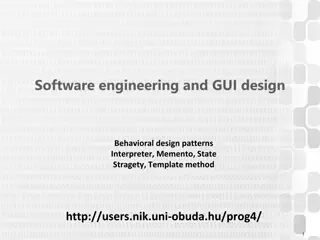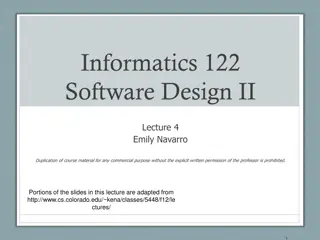Software Design & Implementation Overview
The content covers a course on Software Design & Implementation, including details on final exams, course evaluations, and a victory lap. It emphasizes key concepts and high-level goals while expressing gratitude to those involved in the course.
Download Presentation

Please find below an Image/Link to download the presentation.
The content on the website is provided AS IS for your information and personal use only. It may not be sold, licensed, or shared on other websites without obtaining consent from the author.If you encounter any issues during the download, it is possible that the publisher has removed the file from their server.
You are allowed to download the files provided on this website for personal or commercial use, subject to the condition that they are used lawfully. All files are the property of their respective owners.
The content on the website is provided AS IS for your information and personal use only. It may not be sold, licensed, or shared on other websites without obtaining consent from the author.
E N D
Presentation Transcript
CSE 331 Software Design & Implementation Dan Grossman Fall 2014 Course Victory Lap (Based on slides by Mike Ernst, David Notkin, Hal Perkins)
Today Reminder: Do your course evaluations (!) Final-exam information Last few topics in previous lecture Course victory lap High-level overview of main ideas and goals Connection to homeworks Context Also: Thank-yous Time permitting: Free-form Q&A CSE331 Fall 2014 2
Final-exam information Tuesday, 2:30-4:20PM Very heavily weighted toward second half of course See email from me and sample exams As usual, tough but fair and rewarding CSE331 Fall 2014 3
Victory Lap A victory lap is an extra trip around the track By the exhausted victors (that s us) Review course goals Slides from Lecture 1 What makes CSE331 special CSE331 Fall 2014 4
Huge thanks to the folks who made it work Infrastructure: Xin, Chris Sections: Meg, Aaron Grading: Whitney, Ben, Xin, Chris, Aaron Office hours, email questions, etc.: all This course is itself a sophisticated system requiring savvy design and implementation CSE331 Fall 2014 5
3 slides from Lecture 1 CSE331 Fall 2014 6
10 weeks ago: Welcome! We have 10 weeks to move well beyond novice programmer: Larger programs Small programs are easy: code it up Complexity changes everything: design an artifact Analogy: using hammers and saws vs. making cabinets (but not yet building houses) Principled, systematic software: What does it s right mean? How do we know it s right ? What are best practices for getting it right ? Effective use of languages and tools: Java, IDEs, debuggers, JUnit, JavaDoc, Subversion, Principles are ultimately more important than details You will forever learn details of new tools/versions CSE331 Fall 2014 7
10 weeks ago: Goals CSE 331 will teach you to how to write correct programs What does it mean for a program to be correct? Specifications What are ways to achieve correctness? Principled design and development Abstraction and modularity Documentation What are ways to verify correctness? Testing Reasoning and verification CSE331 Fall 2014 8
10 weeks ago: Managing complexity Abstraction and specification Procedural, data, and control flow abstractions Why they are useful and how to use them Writing, understanding, and reasoning about code Will use Java, but the issues apply in all languages Some focus on object-oriented programming Program design and documentation What makes a design good or bad (example: modularity) Design processes and tools Pragmatic considerations Testing Debugging and defensive programming [more in CSE403: Managing software projects] CSE331 Fall 2014 9
Some new slides to tie the pieces together CSE331 Fall 2014 10
Divide and conquer: Modularity, abstraction, specs No one person can understand all of a realistic system Modularity permits focusing on just one part Abstraction enables ignoring detail Specifications (and documentation) formally describe behavior Reasoning relies on all three to understand/fix errors Or avoid them in the first place Proving, testing, debugging: all are intellectually challenging CSE331 Fall 2014 11
How CSE 331 fits together Assignments: get practice Lectures: ideas Design classes Write tests Write subclasses Override equals, use collections Write generic classes Larger designs; MVC Correctness, testing GUIs N/A Specifications Testing Subtyping Equality & identity Generics Design patterns Reasoning, debugging Events Systems integration CSE331 Fall 2014 12
What you have learned in CSE 331 Compare your skills today to 10 weeks ago Theory: abstraction, specification, design Practice: implementation, testing Theory & practice: correctness Bottom line aspiration: Much of what we ve done would be easy for you today This is a measure of how much you have learned There is no such thing as a born programmer! Genius is 1% inspiration and 99% perspiration. Thomas A. Edison CSE331 Fall 2014 13
What you will learn later Your next project can be much more ambitious But beware of second system effect Know your limits Be humble (reality helps you with this) You will continue to learn Building interesting systems is never easy Like any worthwhile endeavor Practice is a good teacher Requires thoughtful introspection Don t learn only by trial and error! Voraciously consume ideas and tools CSE331 Fall 2014 14
What comes next? Courses CSE 403 Software Engineering Focuses more on requirements, software lifecycle, teamwork Capstone projects Any class that requires software design and implementation Research In software engineering & programming systems In any topic that involves software Having an impact on the world Jobs (and job interviews) Larger programming projects CSE331 Fall 2014 15
Last slide System building is fun! It s even more fun when you re successful Pay attention to what matters Take advantage of the techniques and tools you ve learned (and will learn!) On a personal note: Don t be a stranger: I love to hear how you do in CSE and beyond as alumni Time for ask anything you want ? CSE331 Fall 2014 16
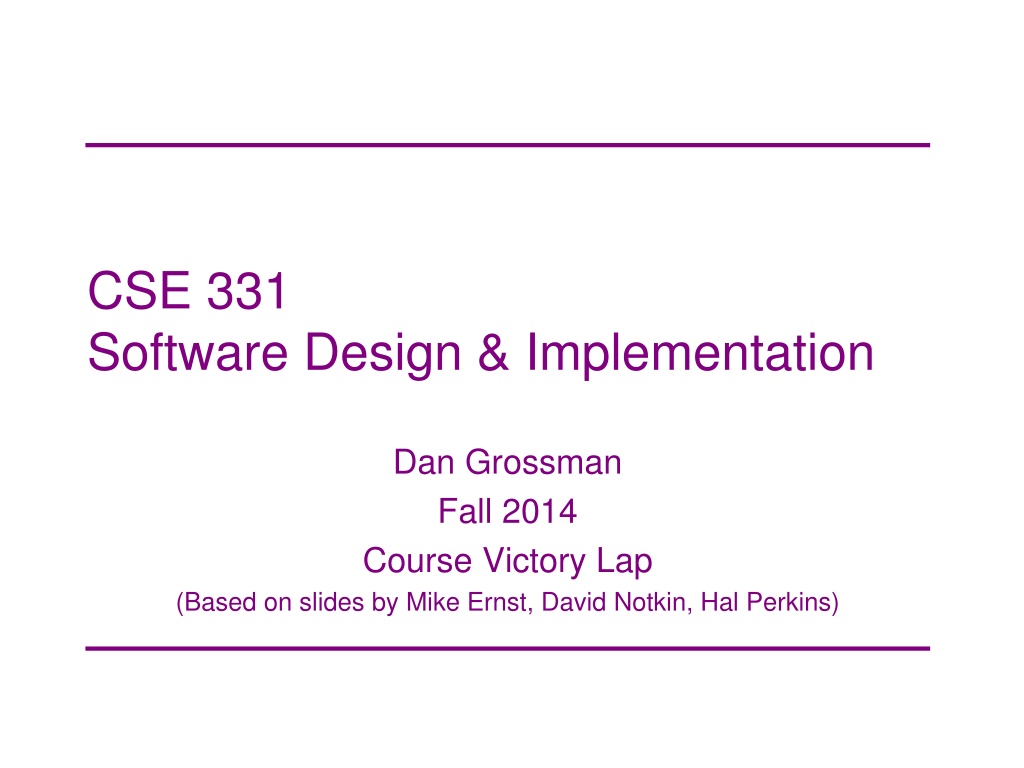
 undefined
undefined




